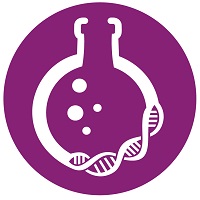Bioanalytics
Symposium: Changing Landscape of Regulated Bioanalysis
Immunogenicity in Context – Identifying the Signal in the Noise
Monday, November 10, 2025
9:30 AM - 10:00 AM CT
Location: 221 AB

Lauren Stevenson, PhD (she/her/hers)
Chief Scientific Officer
Immunologix Labs
Tampa, Florida
Speaker(s)
Rethinking the immunogenicity testing paradigm has been a hotly debated topic over the last several years. Multiple presentations and publications have questioned the utility of the confirmation tier and signal to noise (S/N) continues to gain traction, not simply as an alternative to the titer tier, but as a means to comprehensively understand full subject response profiles. Additionally, inclusion of placebo data can provide context that discerns true responses from biological variability, similar to approaches employed for biomarkers. While many recognize the potential opportunities in terms of greater depth of understanding and time and cost savings that single-tiered analysis can provide, hesitancy remains. In particular, questions tend to be focused on: (1) utility for therapeutics of different modalities and risk categories (2) validation approach for single-tiered assays (3) downstream data handling and analysis. This presentation will highlight how single-tiered analysis can provide greater clarity for clinical interpretation of immunogenicity and will propose assay validation and data analysis approaches to support implementation.
Learning Objectives:
- Understand the limitations with the current 3-tiered paradigm
- Identify context of use for immunogenicity assessment specific to a drug development program
- Evaluate S/N data from screening assays to gain greater insights into biological context, and clinically relevant vs. irrelevant responses
- Apply learnings from biomarker assays to develop assay validation and data analysis approaches that provide a better means to identify and characterize clinically relevant immunogenicity

